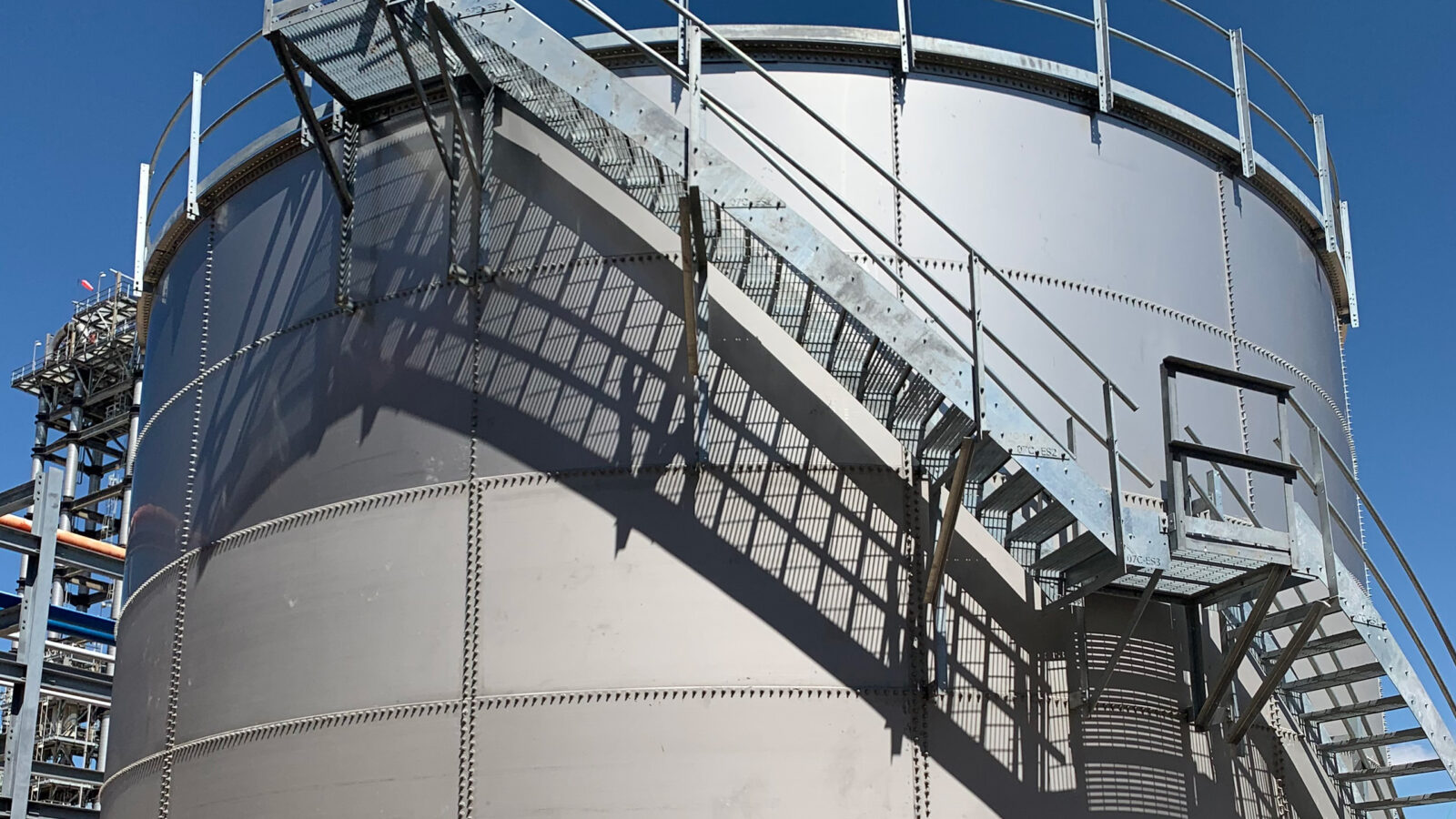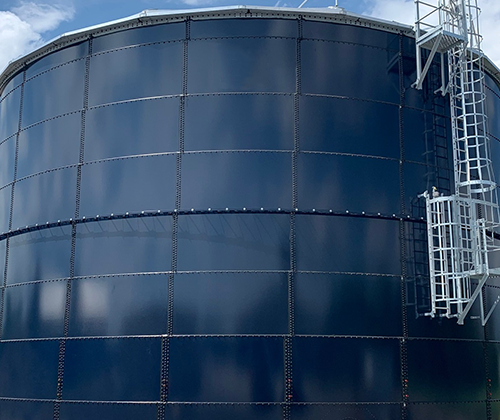views
The Basics of Water Storage Tanks: How They Work and Why You Need One
Water storage tanks are crucial for ensuring a steady supply of water in various settings, from homes to industrial facilities. They play a vital role in managing water resources efficiently, especially when dealing with fluctuating demands or unreliable supply sources. Understanding how these tanks work and their benefits can help you make informed decisions about incorporating one into your system. This guide will cover the essentials of storage tanks, including their functions, types, and the reasons why they are important.
What Are Water Storage Tanks?
Water storage tanks are containers designed to store water for later use. They come in a variety of shapes, sizes, and materials, tailored to different needs and environments. The primary purpose of these tanks is to provide a reliable water supply, whether for everyday use, emergency situations, or specific applications like irrigation and industrial processes. Here are some common types of water storage tanks:
- Residential Tanks: These are used to supply water to homes. They ensure that households have access to water for daily activities like cooking, cleaning, and bathing.
- Commercial Tanks: These tanks are designed for businesses, offices, and industrial operations where larger volumes of water are required.
- Agricultural Tanks: Used on farms, these tanks are crucial for irrigation, livestock watering, and other agricultural needs.
- Emergency Tanks: These tanks are reserved for emergency situations, providing a backup water supply during natural disasters or other emergencies.

How Do Water Storage Tanks Work?
Water storage tanks operate on simple principles, but their design and functionality can vary based on the type and purpose of the tank. Here’s a basic overview of how they work:
1. Collection
The first step in the operation of a storage tank is the collection of water. Water can be sourced from municipal supplies, wells, rainwater harvesting systems, or other sources. The collected water is directed into the tank through pipes or channels. This collection process ensures that there is a ready supply of water available when needed.
2. Storage
Once the water reaches the tank, it is stored until it is required. Storage tanks are designed to keep the water clean and safe. They typically feature a cover or lid to prevent contamination from debris, animals, or environmental factors. Some tanks also include filtration systems to further ensure the quality of the stored water.
3. Distribution
When water is needed, it is drawn from the tank and distributed to its intended location. This can be done through a pump system or by gravity, depending on the tank’s design and placement. The distribution system ensures that water is delivered efficiently to homes, businesses, or agricultural systems.
Types of Water Storage Tanks
Choosing the right type of water storage tank depends on various factors, including the intended use, the volume of water needed, and environmental conditions. Here are some common types of water storage tanks:
1. Plastic Tanks
Plastic tanks are popular due to their lightweight nature and resistance to corrosion. They are often used for residential and agricultural applications. These tanks come in various sizes and are typically more affordable than other types. They are also easy to install and maintain. However, they may not be suitable for very high-pressure applications.
2. Steel Tanks
Steel tanks are known for their strength and durability. They are used in commercial and industrial settings where high pressure and large volumes of water are required. Steel tanks are often coated with protective layers to prevent rust and corrosion, ensuring a longer lifespan. They can be more expensive than plastic tanks but are suitable for more demanding applications.
3. Concrete Tanks
Concrete tanks offer durability and strength, making them ideal for large-scale water storage needs. They can be used both above ground and underground. Concrete tanks are commonly used in municipal water systems, large farms, and other settings where significant water volumes are required. They are resistant to damage and have a long lifespan, but they can be more expensive to install and maintain.
4. Fiberglass Tanks
Fiberglass tanks are known for their strength and resistance to corrosion. They are often used in harsh environments or for specialized applications, such as chemical storage. Fiberglass tanks are lightweight compared to concrete tanks and have a long lifespan. They can be a good choice for applications where durability and resistance to environmental factors are crucial.
Why You Need a Water Storage Tank
Water storage tanks offer several advantages, making them a valuable investment for many situations. Here’s why you might need a storage tank:
1. Reliable Water Supply
One of the primary benefits of having a water storage tank is the assurance of a consistent water supply. Whether you are dealing with fluctuating water demand or an unreliable supply source, a storage tank ensures that you always have access to water. This is particularly important in areas with inconsistent municipal water services or for those relying on well water, which can vary in flow.
2. Emergency Preparedness
Water storage tanks are essential for emergency preparedness. In the event of natural disasters, such as hurricanes, earthquakes, or floods, a tank provides a backup water supply when regular sources may be disrupted or contaminated. Having a dedicated emergency tank ensures that you and your family or business have access to water during critical times.
3. Cost Efficiency
Installing a storage tank can lead to significant cost savings over time. By storing water during periods of low demand or when rates are lower, you can reduce your reliance on more expensive water sources. This can be especially beneficial for businesses and agricultural operations that need to manage large volumes of water.
4. Water Management
A storage tank helps in managing water usage more effectively. By storing water during times of surplus, you can use it during times of high demand or low supply. This helps in balancing water availability and ensuring that you have enough water for various needs, whether it’s for daily use, irrigation, or industrial processes.
Choosing the Right Water Storage Tank
When selecting a water storage tank, consider several factors to ensure you choose the right one for your needs:
1. Size and Capacity
Determine the volume of water you need to store and choose a tank that meets your requirements. Tanks come in various sizes, so it’s important to select one that provides adequate capacity without being excessively large.
2. Material
Choose a tank material that suits your environment and application. Plastic tanks are often suitable for residential use, while steel and concrete tanks are better for commercial or industrial applications. Fiberglass tanks are ideal for specialized needs.
3. Location and Installation
Consider where the tank will be installed. Some tanks are designed for above-ground use, while others are suitable for underground placement. Ensure that the installation site is appropriate for the type of tank you choose and that it can accommodate the tank’s size and weight.
4. Maintenance and Durability
Think about the maintenance requirements and durability of the tank. Some materials, like plastic, may require less maintenance, while others, like steel and concrete, may need periodic inspection and care. Choose a tank that aligns with your maintenance capabilities and long-term durability needs.

Conclusion
Water storage tanks are important for making sure you always have enough water. They help in emergencies, save money, and make it easier to manage your water supply. By learning about storage tanks and getting advice from a reliable storage tank company, you can choose the right tank for your home, business, or farm. With the right tank and help from a good storage tank company, you’ll have a steady and reliable water supply whenever you need it.























Comments
0 comment